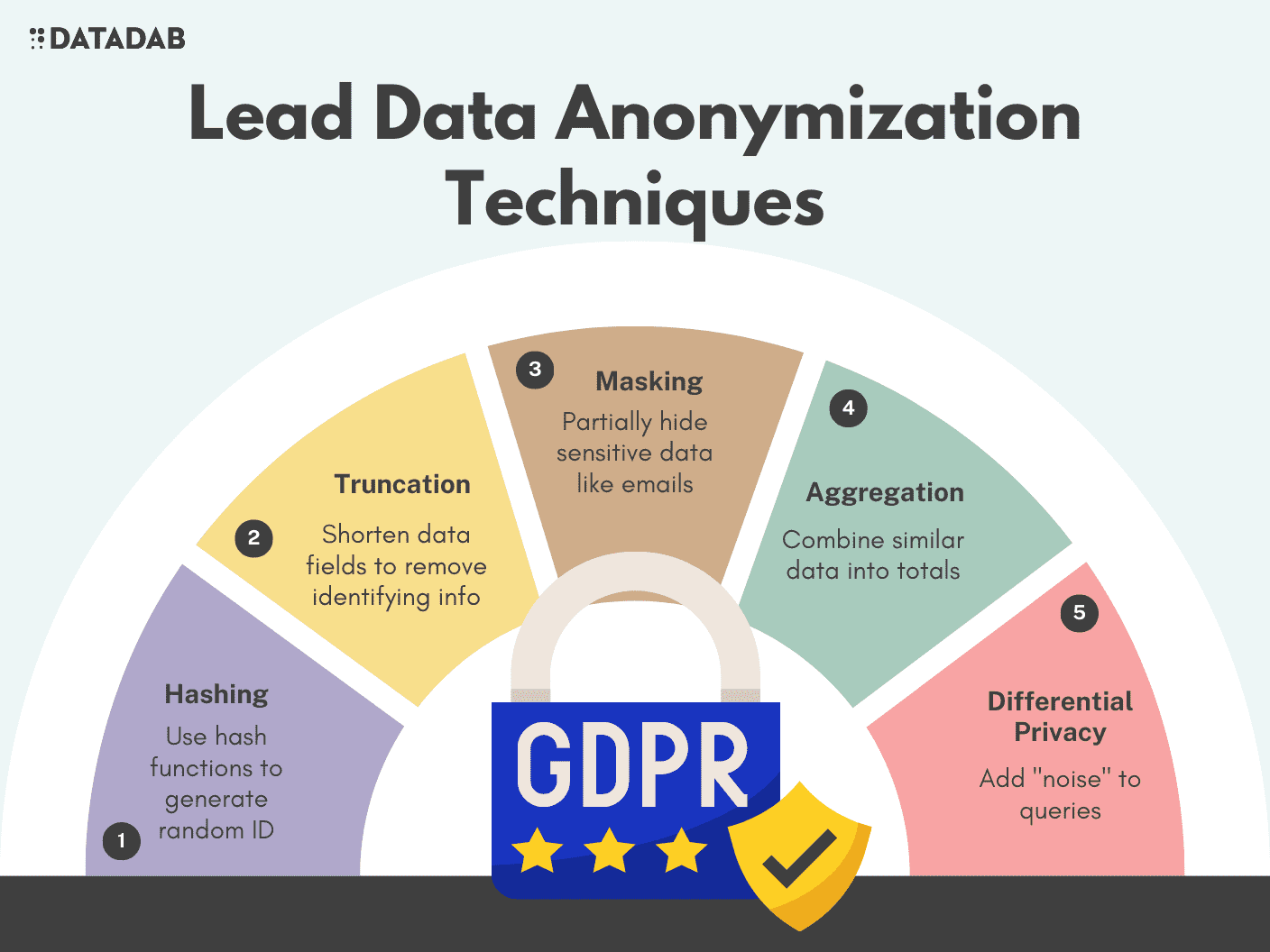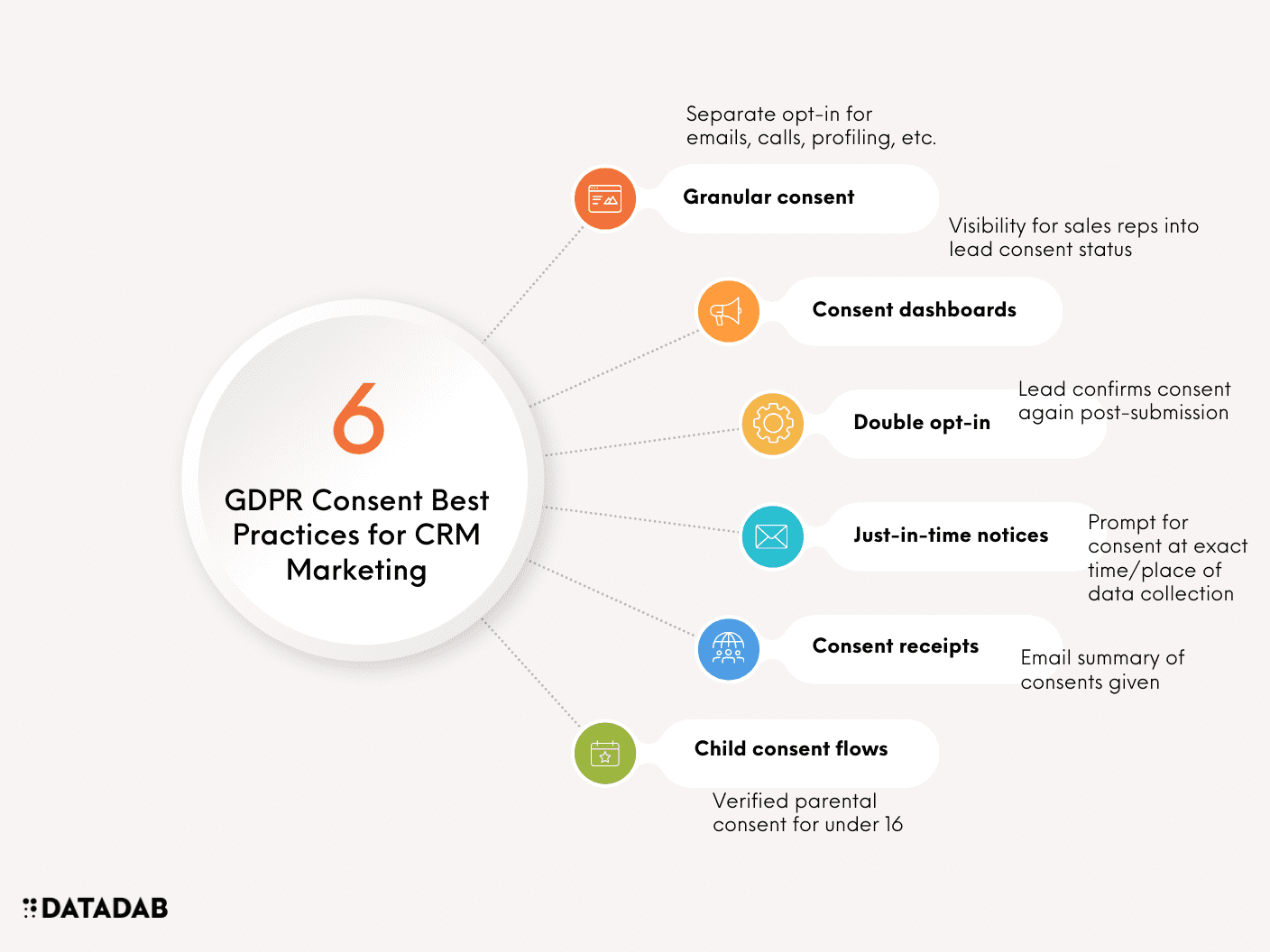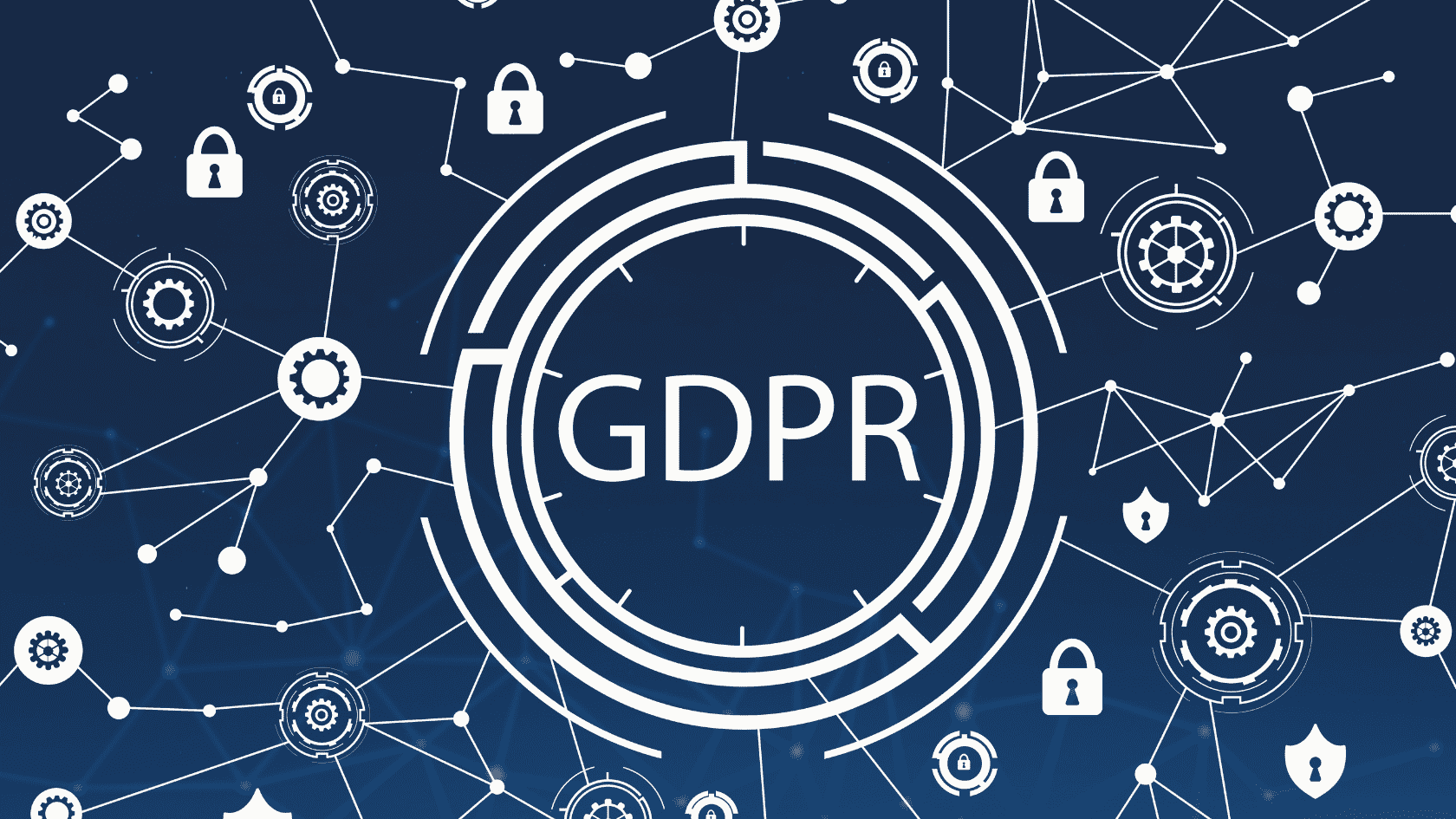"Don't view GDPR as an obstacle to overcome, but an opportunity to build customer trust through ethical data practices."
As a marketer for a CRM software company, GDPR compliance likely causes you headaches around capturing and nurturing leads. You need to walk a fine line between effective lead gen and stringent data privacy rules.
This guide provides CRM marketing teams with advanced GDPR strategies to maintain pipeline while adhering to regulations. We'll cover:
- GDPR provisions with direct impact on CRM marketing
- Consent mechanisms to legally collect lead data
- "Privacy by Design" tactics for your marketing stack
- Keeping your ad campaigns and landing pages compliant
- Training sales to handle leads appropriately
- Preparing for GDPR mishaps like breaches
Follow these best practices, and your marketing programs can thrive within the boundaries of GDPR.

GDPR Articles That Affect CRM Marketing
Let's overview the GDPR articles that directly impact your lead generation and sales enablement activities:
Article 6 - Lawfulness of Processing
You must have valid lawful grounds like consent or legitimate interest to collect and use lead data.
Article 7 - Conditions for Consent
Consent must be clear, specific, and opt-in only. No pre-checked boxes or inactivity implying consent.
Article 12 - Transparent Information
You must inform leads how their data is used via privacy notices and consent flows.
Article 13 - Personal Data Collected from Individual
Leads must receive detailed disclosures when data is directly collected from them.
Article 14 - Personal Data Not from Individual
If getting lead data indirectly (e.g. list purchase), they still must be informed upon first contact.
Article 17 - Right to Erasure
Leads can request their data be deleted, requiring you to remove them from CRM and marketing.
GDPR Consent Checklist
☐ Consent is freely given
- No pre-ticked boxes or opt-out only choices
- No making consent a condition of service
☐ Consent is specific
- Granular options for separate purposes
- Clear, distinct consents for different activities
☐ Consent is informed
- Provide transparency into data usage
- Plain language, explicitly stating consent
☐ Consent is unambiguous
- Active opt-in with clear affirmative action
- Consent cannot be inferred from inaction
☐ Consent is documented
- Maintain records of who consented, when, how, and what to
- Capture date/time, action, IP, device
☐ Consent is easy to withdraw
- Equally easy withdrawal process as providing consent
- No refusal fees or imbalances
☐ Consent is verifiable
- Double opt-in via email or similar
- Periodic re-permissioning
- Audit trails
☐ Consent options are user-friendly
- Layered "just-in-time" notices
- Preference center for managing consent
☐ Consent preferences apply across channels
- Integrated records across web, mobile, IoT
- Unified customer experience
☐ Consent is kept up-to-date
- Remind users to revisit preferences
- Refresh consent after periods of inactivity

Advanced Consent Mechanisms
For consent-based processing, use these tactics to capture GDPR-compliant lead data:
Granular Checkboxes
Allow leads to selectively consent to specific purposes like emails, calls, analytics, etc.
Just-in-Time Notices
Place contextual privacy notices/consent prompts when and where data is first collected.
Confirmation Email
Require leads to click a verification link in email before fully added to CRM and marketed to.
Preference Center
Build a portal for leads to review and update their consent preferences anytime.
Child Consent
Verify parent consent via email for any leads under 16 years old.
Consent Receipts
Send "receipt" emails summarizing the consent preferences leads have agreed to.
Consent Dashboards
Give sales reps visibility into consent status right within each lead record in the CRM.

"Privacy by Design" for Marketing Tech
Embed privacy directly into your marketing architecture:
DPIAs
Conduct Data Protection Impact Assessments for any new high-risk marketing activities.
Data Minimization
Only collect and store minimum lead data needed for marketing and sales purposes.
Anonymization
Use hashing, aggregation, etc. to anonymize lead data for analytics where possible.
Access Controls
Restrict marketer access to lead data based on role and need-to-know basis.
Encryption
Use TLS/SSL encryption for your marketing sites, forms, and email campaigns.
Right to Access/Delete
Build self-service portals for leads to access or delete their data.

Compliant Ads and Landing Pages
Your ads and landing pages must clearly disclose how lead data will be used:
Transparent Ad Targeting
In ad targeting disclosures, explain you are using website visitation data, CRM data, etc. to target relevant individuals.
Privacy Notices
Include full privacy notice and consent flows on landing pages before capturing lead data.
Lawful Interest Justification
If relying on legitimate interest basis, document why your lead gen interests are proportionate and don't override rights of individuals.
Third-Party Tracking Disclosures
Disclose any third-party cookies/tracking (e.g. analytics, ads) on your landing pages and explain purposes.
Children's Ads
Ensure no behavioral targeting of ads to children under 13 in EU without parental consent mechanisms.
Sales Team Enablement
Properly train sales reps to handle leads in a compliant manner:
Lead Data Visibility
Grant sales reps visibility into what data leads have consented to use and process.
Call/Email Scripts
Provide sample scripts for confirming and capturing GDPR consent during sales calls and outreach.
Ongoing Consent
Instruct reps to re-capture consent if contacting dormant leads or using data for new purposes.
Objection Handling
Train reps to immediately honor lead requests to stop processing data or have data deleted.
Regular Audits
Audit samples of sales rep outreach for adherence to consent and data handling policies.
Breach Response Plan
Despite best efforts, a data breach may still occur. Have processes to handle breaches professionally:
- Assemble response team including legal counsel
- Notify supervisory authority within 72 hours of awareness
- Notify impacted individuals without undue delay
- Offer credit monitoring if breach has high risk of identity theft
Conclusion
With the right consent mechanisms, privacy-focused processes, and sales team training, CRM marketing teams can achieve GDPR compliance without destroying lead generation results. View compliance as a trust-building exercise. Master the principles here, and your CRM business will be primed for GDPR success.
FAQ
1. What are the lawful bases we can use to process lead data under GDPR?
The two main lawful bases for CRM lead processing are consent and legitimate interest.
- Consent requires an affirmative opt-in with granular choices for separate data uses.
- Legitimate interest allows necessary processing for your core business interests. But you must assess if your interests override the privacy rights of leads, document this, and clearly inform leads.
Other lawful bases like contract, legal obligation, and vital interest also apply in certain specific situations.
2. How should our privacy notice and consent flow be updated to comply with GDPR transparency requirements?
Your privacy notice and consent flows need to clearly disclose:
- What categories of personal data you collect
- Your purposes for processing the data
- Any third party recipients of the data
- What you use the data for (e.g. marketing, analytics)
- The lawful basis for processing
- How long you retain the data
- That individuals can withdraw consent easily
- That individuals can request data deletion or access
- Contact details for your data protection officer (DPO)
Present this information in a layered format that summarizes key points upfront clearly and provides details through expandable sections or links.
3. What identifying data fields should be removed from our lead capture forms to improve data minimization?
To improve data minimization, remove any fields that collect more data than needed for your processing purposes. Common unnecessary fields include:
- Gender, date of birth, marital status
- Home/billing address details beyond city and postal code
- Full phone number if only country code is required
- Social security numbers, government IDs
- Bank account details, credit card numbers, etc.
Only retain fields essential for marketing and sales, like name, work email, company name and industry, work phone.
4. How can we anonymize IP addresses after lead capture to enable analytics while protecting privacy?
Use a technique like IP masking to anonymize collected IP addresses:
- Strip the last octet of the IP address to lower but not fully remove uniqueness
- Hash the full IP using a cryptographic one-way hash algorithm
- Aggregate IPs into larger network blocks to prevent identification
Refresh the anonymized IP data regularly to prevent re-identification over time as leads browse your website across sessions.
5. What specific types of ad targeting should our ads disclaimer mention to comply with transparency requirements?
Your ad disclaimer should explain the actual data sources used to target ads to individuals, such as:
- Past interactions with our website (via cookies)
- Customer data from our CRM system
- Job titles, company information, professional social media
- Lookalike profiling based on existing leads/customers
- Industry-specific keywords or content sites
Avoid generic terms like "interest-based" targeting. Be as specific as possible about data sources.
6. How should our sales team re-capture consent if contacting old or inactive leads again?
Provide reps scripts to:
- Check the CRM dashboard for the lead's current consent status
- Note the date the lead was last contacted
- If consent likely expired, explain you need to re-capture GDPR consent before discussing further
- Obtain fresh opt-in consent for any planned data processing activities like sending marketing emails
- Record the new consent details and timestamp in the CRM system
Don't assume old leads have provided continuous, ongoing consent. Proactively re-obtain consent.
7. What methods can we use to monitor our marketing systems and vendors for GDPR compliance?
- Conduct quarterly audits of marketing systems, randomly sampling data practices, consent records, disclosures, anonymization, access controls, etc. for compliance risks.
- Annually assess marketing vendors' compliance via questionnaires, contracts, on-site assessments, and policy reviews.
- Continuously scan marketing systems, networks, and databases for potential unauthorized access that could lead to a data breach using SIEM tools, vulnerability testing, penetration testing, etc.
- Use DPIA frameworks to analyze new marketing processes, technologies, and third-party sharing before deploying them.
8. How should we train our sales team on GDPR consent best practices?
- Educate reps on lawful bases, transparency, consent, data rights, security principles, and penalties.
- Provide sample dialogs and scripts for capturing GDPR-compliant consent on sales calls and outreach.
- Highlight the consent dashboard in the CRM system so they can easily verify consent status.
- Explain how to immediately honor data deletion, restriction, and opt-out requests.
- Audit reps regularly via call/email listening to monitor practices. Provide feedback and additional training as needed.
9. What should our data breach response plan cover at a minimum?
The plan should cover:
- Notifying the relevant supervisory authority within 72 hours, including details of the breach and affected individuals.
- Communicating the breach transparently to all impacted data subjects without undue delay.
- Appointing a breach response team including key internal stakeholders and external legal counsel.
- Investigating the root cause, impacted systems/data, and steps to contain the breach and prevent recurrence.
- Determining if the exposed data is sufficiently sensitive to warrant offering identity protection services to affected individuals.
10. How can we structure our website privacy notice and consent flow for maximum transparency?
Use a layered "just-in-time" approach:
- Summarize key points like lawful basis, data uses, and rights at the top.
- Provide granular opt-in checkboxes for separate data purposes like email, phone, profiling, personalization, etc.
- Expandable sections for those that want detailed explanations and lists of exact data types collected.
- Inline links to full legal policies like privacy notice and cookie policy.
- Consent management portal for reviewing preferences anytime.
- Just-in-time notices that appear on website at the exact moment and context data is captured.






